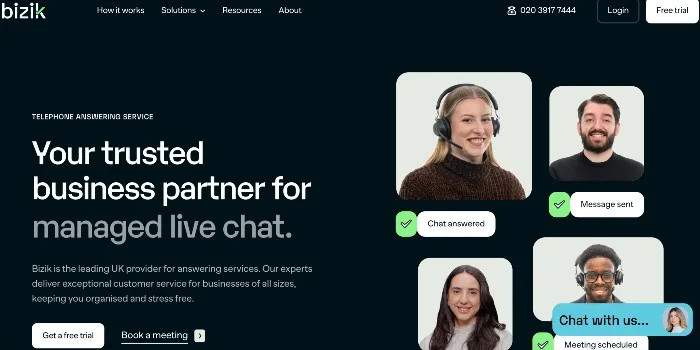One of the most exciting, and daunting, first steps a small business can take is taking on their first employee.
But recruiting talented employees is no walk in the park. It takes time and it takes work finding and attracting the right employees to your job.
If you’re not willing to put this time and effort in, you might want to consider going to a recruitment agency and letting them handle it all. The downside? It can cost you a small fortune for them to do it for you.
If you want to make better use of your budget, keep the recruiting to yourself.
Here’s how you can find the perfect employee you’ve been looking for.
First of all, register yourself as an employer
If you’re not already registered as an employer, you need to get this changed. This means that your legal rights and responsibilities will also change – so please make sure you understand the fine print before you apply online.
You need to register as an employer up to four weeks before you pay your new staff member.
Just bare your timing in mind. Registering with HMRC can take up to 2 weeks to process and you can’t do it more than two months in advance of you paying your new staff.
That leaves you a rather limited window, but it’s one that you will be able to navigate by working out the ideal starting date for your new employee.
Once you’re registered as an employer, you are required by law to have employers’ liability (EL) insurance, covering at least £5 from an authorised insurer.
Many of the big insurers such as AXA offer business insurance policies such as employers liability cover. If you’re unsure, take a look at the registered and approved list of British Insurance Brokers’ Association (BIBA) or the Association of British Insurers.
This insurance is required to protect your business from being sued if any of your employees are injured at work and will compensate employees if an incident occurs.
If you need any more information about this type of insurance, it may be best to speak to a licensed professional to ensure that you’re fully covered.
Get a clear idea of who you need to hire

Before you go about starting to recruit for your business, it’s important to really narrow down who you’re looking for.
Spending time outlining this will really help you create a job description and ensure that you’re attracting the right people to the job.
So, beyond a simple job title, think. Who exactly do you want to work with you and what do you want them to achieve? What will the do for you day-to-day and how will they grow your business in the long-term?
When you know the answer to these questions inside and out, you’re ready to move on.
What skill level do you need?
The higher the skill level and experience, the more you’ll have to budget for them.
And sometimes, it’s not worth it. If you’re just starting out, you don’t need a global marketing manager. You need someone who is at the right level for your business and can work with you to help it grow.
It’s also worth considering if you want to hire an apprentice.
Apprentices are a great way to add new talent and skill to your business, without costing the earth. Because you’re helping to foster young talent, the Government will contribute towards the majority of their training costs. What’s more, having an apprentice will also help contribute towards your local community and help strengthen your relationships in your area.
Outline what you can give your employee
Employing someone is a two-way process. You need to decide what you want from your employee – and what you can give to them.
It’s give and take. You can’t expect to attract the best talent if you’re offering them nothing in return.
The first place to start is with the salary. Yeah, it’s a big one but something you need to get out of the way. The best way to do this? Find out what the going rate for the job role is in your area and match it.
After all, you can’t expect someone to take your job offer if you’re offering them far less than anyone else in your area. If you haven’t got the budget for the talent you need, you aren’t going to get it.
It’s worth considering making the salary clear in your job description as well. Not knowing what the salary is can put many potential employees off applying.
It’s not all about money!
As you are well aware, money isn’t the only aspect of a job. You’ve got to think about the benefits an employee would get working for you.
What can you offer that will make people want to work for you? It’s not just about finding the right person for you. You’ve got to be the right business for them as well.
Here are a few questions to get you started:
- How many holidays a year will they get?
- Will they be allowed to work from home or in the office?
- Will they work a fixed amount of hours or have flexible working hours?
- Will you plan staff events or perks if they achieve their goals?
- And so on…
As well as thinking about what you can offer them right now, you need to spare a thought about the long-term.
People don’t want to accept jobs that they’ll grow out of quickly. They want to find a place that they enjoy working for and can offer them a place to grow and progress.
So, think about career progressions and what you can offer. If you expand your business, will you take on more staff? Would they be responsible for growing your team? Would they be able to expand their job role as your business grows?
These are all questions you need to prepare to answer.
Lost the buzz for your business?
Starting a business is exciting. Succeeding is rewarding. The bit between is hard, repetitive, and full of self-doubt.
The Lonely Middle Club (From Business4Beginners) helps you through it:
Get support and advice from other small business owners
Remove the self-doubt that’s holding your business back
Learn techniques and strategies to grow your business faster
Be inspired with our exclusive ‘swipe’ file and AI-powered tools
No pressure – work at YOUR pace, towards YOUR goals
—
Create your job description

Now you know who you want, it’s time to get all this down on paper with your job description. This is an important part to get right, as it’s what your dream employee will read and use to decide if they should apply for your job.
The essential information you need to cover includes:
- A description of their job role and what duties they’ll be doing
- What benefits you can offer them as an employee
- Information about your business and what you do.
- What skills and qualifications you’ll be looking for.
- How to apply.
- What you’ll need from them. For example, will they need to submit a portfolio of work? Carry out a skills assessment? Show proof of their qualifications?
Not sure where to start? Check out these acas templates for some inspiration.
But don’t just state the facts. If you can, inject some personality and excitement into the advert. Your potential employee has most likely seen your advert in a sea of others like it. If you list the exact same things as everyone else, there’s nothing that sets you apart.
Before you send it out, double-check to make sure that you haven’t accidentally included any instances of discrimination.
This could include things like:
- Using only one set of specific pronouns like “he” or “she”, excluding other genders. This also includes using gendered terms like ‘barmaid’ or ‘handyman’.
- Making a specific requestion about someone’s nationality, instead of language requestions. For example, asking for a ‘German sales rep’ instead of a ‘German-speaking sales rep’.
You get the idea.
Advertise and spread the word
Now you’ve got all the essentials in place, it’s time to get your job advert out there.
There are tons of different ways that you can do this. This includes traditional methods like advertising in a paper or physically sticking up posters in local areas.
But if you really want to reach people and attract the best talent, you need to be making the most of social media. It’s a powerful tool to share your offering amongst more people.
If you’re willing to put some money behind your adverts, you’ll even be able to target them to the exact type of employees that you’re looking for.
This is why 92% of recruiters use social media to attract talent.
If you’re new to social media, platforms like LinkedIn might be a good place to start. Considered a ‘professional network’, this platform is often used by professionals who are looking for new jobs. In fact, the platform comes with its own built-in jobs tab to make it easier for users to see offerings in their area.
When using social media, make sure that your own pages are filled out and active. If people see your listing, the first thing they’ll do is click through to your company. This is where they decide if they want to apply or not.
Give them a reason to. Promote your company and show what you’re all about.
The last thing you want them to see is a blank page. This makes you look untrustworthy and will make them turn to somewhere more established.
You also need to be careful not to go too far with your targeting. If you’re looking for a new hairdresser to join your salon, but only advertise to 18-30-year-old females in your area, you’re applying a lot of assumptions to your job advert.
Keep notes and refer back to them

Even if you’ve got a good memory, this is an important thing to do when hiring someone. You might meet a lot of candidates for the job and when you’re making a decision as important as this, you need to remember all the tiny little details.
They could make the difference between picking the right candidate or the wrong one.
If you get a host of good candidates, it’s also a good idea to keep their information on record if you ever expand later down the line.
Offer them the job!
Found your perfect candidate? It’s time to offer them the job.
Now, it’s not so simple as telling them that they’re hired. There are a few steps that you have to carry out to make sure that everything is legal, compliant and above board.
It takes with a job offer letter. This is a formal way to show that you are offering a job to the candidate and needs to include:
- The job title and a confirmation that you’ve offered them the job
- Any conditions that the offer relies on. For example, if they’re not eligible to work in the UK or can’t provide proof of their qualifications, the job offer is no longer valid.
- The terms of the job, including their salary, hours, benefits, pension, holiday and so on.
- Their start date and details of any probationary period that they will have to work.
- What they need to do to say yes and start working for you.
This is the really exciting part.
But before they can formally start working for you, you need to make sure that the candidate has a right to be able to work in the UK. If you don’t do this, your business could be fined up to £20,000. Yikes.
You also need to give them written terms within 2 months of them starting work.
Set up your payroll

Once your employee has said yes, there are a few legal obligations that you need to take care of. This includes, surprisingly, paying your employees.
That means that you need to sign up and get login information for PAYE Online and choose the right payroll software for your business. This needs to be something that is easy to use, will calculate your employee’s pay and deductions and compiling the records that you need to send over to HMRC.
Need help? You can outsource your payroll duties to your accountant or HR department to make sure that it’s all taken care of.
You can also choose to get email reminders, notices and alerts from HMRC when you register as an employer to help you keep on track of your paperwork.
Maintain accurate employee records
As well as keeping personal notes, you need to make sure you’re fulfilling all of your legal obligations.
This includes keeping up-to-date records of all your employees, storing information such as:
- Your employee’s full name, address and contact details.
- Their emergency contact details.
- A signed copy of their employment contract.
- Their bank details, or other payment details depending on the species of their pay.
- Their tax details.
Just make sure that these records are kept secure. Otherwise, you could be at risk of a massive breach of data protection.
You need to hold onto these records for at least 6 years.
If you’re unsure about what information you’ll need to store, contact the HMRC. They’ll be able to guide you through the process and make sure that everything is as it should be.
If you’re not sure about what information you can and should collect for each employee, contact HMRC.
Begin the search for your employee
And there you have it.
That’s all the tips and advice you need to find and recruit the best talent to work for your small business, without spending a fortune on recruitment agencies.
The golden tip to remember? Recruiting is a two-way deal.
It’s not all about what an employee can do for your business. If you really want to find the best person out there, you need to look at exactly what you can offer them in return and promote this in your job adverts and descriptions.
If you do this, you’re bound to get dozens of ideal candidates through your doors. It’s up to you to choose the right person for the job. Once you do, you can follow the rest of our tips to make sure the process is compliant and straightforward as possible.
If in doubt, there are tons of places you can turn to for helpful advice. This includes HMRC as well as local HR and legal teams.
Good luck!







